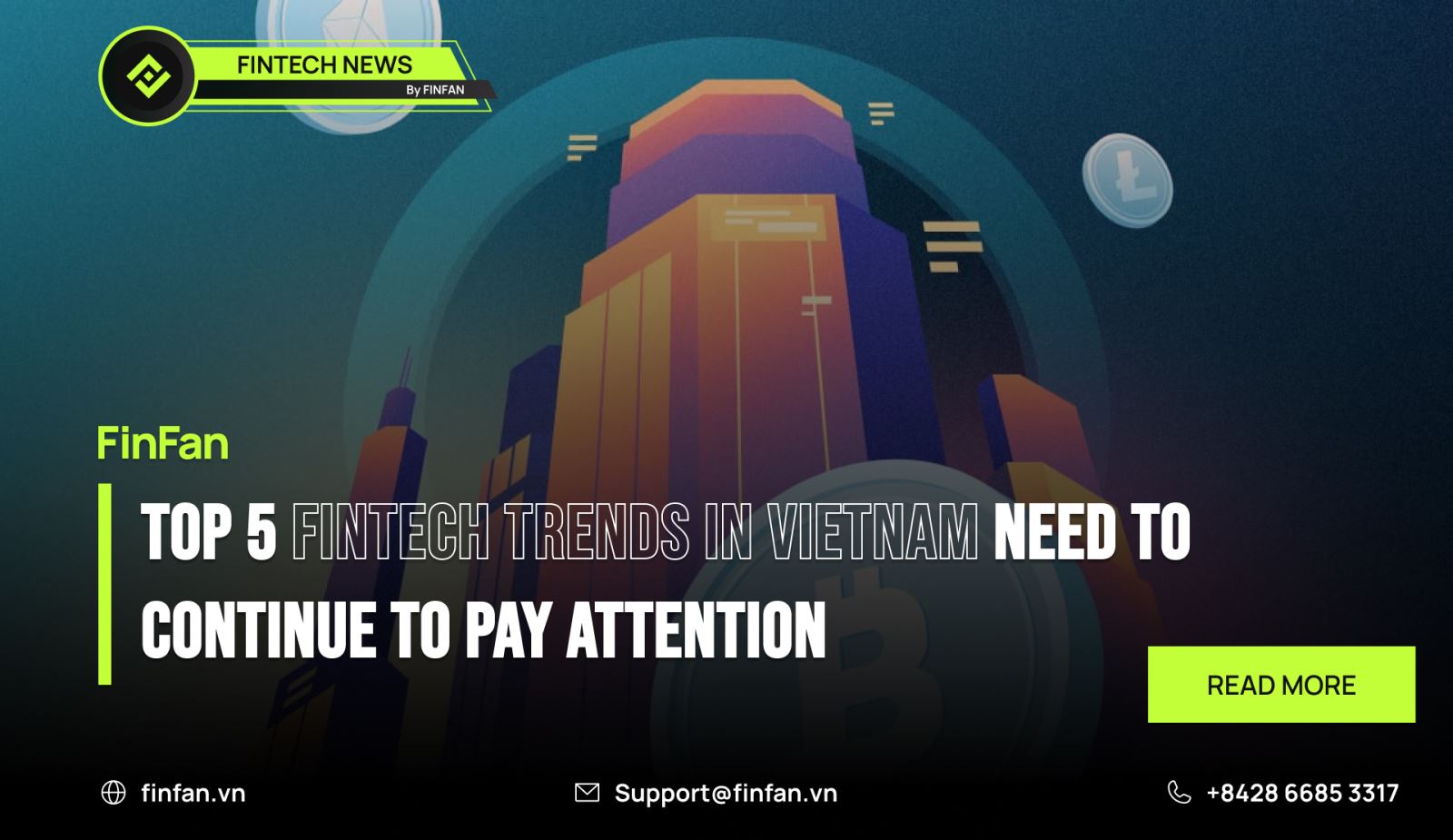Top 5 Fintech Trends in Vietnam Need to Continue to Pay Attention

Fintech in Vietnam is still a very new industry and very competitive. Introduced to Vietnam in the 2000s with the trend of payment gateways, up to now, this industry has been growing continuously and supporting many people to solve financial problems when they belong to the group unbanked and underbanked.
In this article, let's join FinFan to learn about 5 new fintech trends in Vietnam that startups need to pay attention to to develop.
- Harnessing AI and ML: A New Frontier in Fintech
For a long time, Artificial Intelligence (AI) and Machine Learning (ML) have become a trend in all fields. It not only supports the e-commerce sector in remembering customer lists as well as collecting their consumer behavior for future advertising campaigns.
In medicine, artificial intelligence is used as a disease diagnosis tool to partially support doctors. In sports, sometimes AI can help athletes know their body indicators and strengths/weaknesses better so they can improve as well as have appropriate training methods (sometimes AI will become training partners with the athletes themselves).
Another typical example is in the office environment, where AI has been very effectively supporting bosses in timekeeping and distributing salaries and bonuses according to the capabilities of each person and each department.
Returning to the issue of fintech, AI today can not only support fintech companies but also banks in creating applications related to payments and faster money transfers. Recently, MBBank launched a very convenient payment campaign using Stellar bracelets.
Every time you need to make a payment, you just need to press the bracelet and scan the QR code to successfully make a money transfer order. At the same time, this bracelet is designed specifically for each user to make them feel unique and can store all the user's behaviors so it can help customers manage spending conveniently and most beneficially.
These AI and ML emerging technologies are being used to streamline banking processes, improve customer experience, enhance decision-making, and detect fraud. AI chatbots and virtual assistants also play a crucial role in customer service.
- Stablecoins as the Future of Digital Money
Although Vietnam still does not have any laws for accepting payments and transferring money in stablecoins or other cryptocurrencies. However, this is also a very potential area for fintech startups to exploit, especially companies involved in cross-border money transfer.
Read some more information below to know why:
Moreover, stablecoins also enable faster, cheaper, and more transparent transactions, as they use blockchain technology to eliminate intermediaries, lower fees, and increase traceability.
- Growth of Niche Neobanks
Neobanks or Digital Banks is the definition of a digital banking system, that can help people to get access to banking services although they are underbanked and unbanked people.
The only difference between Digital Banks and Neobanks is that Neobanks are created by fintech companies and Digital Banks are created from banks that are digitized.
Because they are created by fintech companies, Neobanks can solve more niche problems for users that normally take a long time for a bank to complete the process. For example, through Neobanks, collecting and paying money from abroad, adding digital assets to payment gateways, etc.
- The Evolution of Embedded Finance
The application of scientific and technological advances in the financial sector to non-financial fields is still one of the things that can bring success to fintech companies.
These applications are not only supporting temporarily or just a portion of additional revenue of other non-financial industries but also are gradually becoming more and more important and an indispensable part of supporting customers to have the best experiences when shopping or using services from non-financial parties.
Although still in early development, embedded finance is rapidly growing, giving users more financial control and diminishing their reliance on traditional banks.
- Faster Global Payments: The Shift to Instant Transfers
*More and more national payment schemes are rolling out instant payment systems. Some of these systems are also starting to interconnect and offer international instant cross-border payments.
This trend is anticipated to lower expenses and improve the overall efficiency of the global financial system. As more banks participate in instant payment networks, both consumers and businesses will enjoy a more efficient and seamless payment system.*
*Source: Fintech News Switzerland